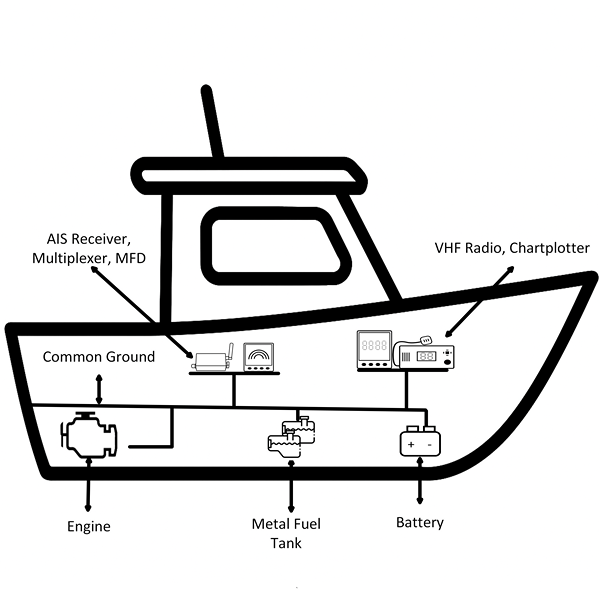Why is a common ground essential? Safety with Quark-elec
When you’re out on the water, reliability isn’t just a luxury—it’s a necessity. From navigation systems and radios to bilge pumps and fish finders, your boat’s electronics are only as dependable as the power system behind them. One often-overlooked but critical part of that system is the common ground.
What is a Common Ground?
In electrical systems, the ground serves as the return path for current. On a boat, a common ground means that all electronic devices share the same grounding point. Instead of each device having its own separate ground connection, everything ties back to a single, unified grounding network.
Why It Matters
1. Prevents Electrical Noise and Interference
Marine electronics—like GPS units, depth sounders, and radios—are sensitive to electrical noise. If each device has its own ground, differences in potential can create interference, leading to distorted signals or unreliable performance. A common ground helps eliminate those discrepancies, keeping your displays clear and your communications crisp.
2. Improves Safety
Electricity and water don’t mix well. A poorly grounded system can pose a shock risk, damage equipment, or, in the worst case, contribute to onboard fires. By tying all devices to a common ground, you reduce the chance of stray currents or hazardous conditions.
In the event of USB powered devices, it is good practice to ensure the use of an additional grounding wire connected to the common ground to ensure safe usage and longevity.
3. Protects Against Corrosion
Galvanic corrosion is a silent enemy in the marine environment. Stray electrical currents can accelerate the deterioration of underwater metals, like propellers and through-hulls. A proper bonding system with a common ground helps control these currents and reduces the risk of expensive damage. Where possible, Quark-elec devices have galvanically isolated connections and ports to assist this.
4. Simplifies Troubleshooting
When something goes wrong with your electronics, a scattered grounding system can make diagnosis a nightmare. A common ground makes it easier to test connections, identify faults, and fix issues quickly—so you spend less time with a multimeter and more time enjoying the water.
5. Ensures Compatibility of Modern Electronics
Today’s boats often carry a mix of legacy systems and cutting-edge gear. Many modern devices are designed with the assumption that they’ll be connected to a common ground. Without one, you risk voiding warranties, causing malfunctions, or even damaging sensitive equipment.
Best Practices for Establishing a Common Ground
- Use a Ground Bus Bar: A central bus bar gives all devices a shared grounding point.
- Bond to the Engine Block: In most boats, the engine block serves as the main ground connection.
- Check Connections Regularly: Corrosion can degrade grounding over time, so inspect and clean connections periodically.
Final Thoughts
Your boat’s grounding system is easy to ignore—until it causes a problem. By making sure all your electronics share a common ground, you’ll enjoy better performance, increased safety, and longer-lasting equipment. It’s a small investment in wiring that pays huge dividends in peace of mind and reliability every time you leave the dock.

